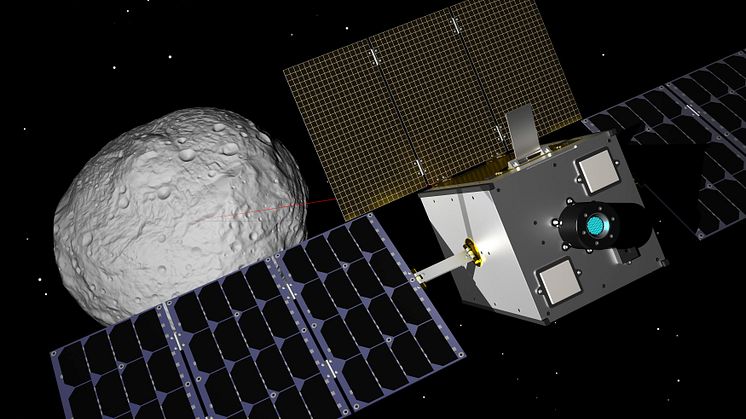
Press release -
Politecnico di Milano conquers the solar system with the ERC EXTREMA project
The Francesco Topputo’s (Politecnico di Milano Department of Aerospace Engineering) Engineering Extremely Rare Events in Astrodynamics for Deep-Space Missions in Autonomy (EXTREMA) project won a prestigious ERC Consolidator Grant worth two million Euro. The European Union selects for the award top researchers, who are consolidating their scientific independence, and the award is for cutting edge projects.
EXTREMA will produce "self-driving interplanetary CubeSats," which are self-driving, shoe-box sized space probes able to escape Earth’s gravity to arrive at their target, without ground control. This unique project poses quite a few challenges. Nanosatellites (CubeSats) must independently determine their position by observing celestial bodies and move along the correct course using miniaturised thrusters. EXTREMA will integrate artificial intelligence elements and use gravitational capture, which is a delicate astronomical mechanism, to enter orbit around planets.
The benefits of using this technology are considerable. Universities, research centres and companies can access deep space at low cost, by combining satellite miniaturisation with lower operating costs. This will lead to a potential proliferation of space missions and a deeper understanding of our solar system. The technology’s complexity requires a team of international researchers who will be led by Professor Topputo.
EXTREMA’s applications
For more than 50 years, the robotic exploration of the solar system has been carried out using probes guided from Earth. During their journey to planets, asteroids or comets, spacecraft are in frequent contact with Earth stations while they are waiting for instructions. In this system, teams of engineers must identify the satellites’ position and build a "flight plan" so that satellites arrive at their destination on time and in a pre-arranged manner. This approach requires considerable resources as space travel can take months or years.Recently, electronics miniaturisation has allowed nanosatellite development and spread. These are light-weight miniaturised systems capable of performing scientific measurements in the same way as their "predecessors" which weighed hundreds of kilos. The CubeSats advantage lies in their low development cost and fast production. CubeSats have been adopted by NASA, ESA and JAXA, the three leading space agencies in the world, for scientific missions in Earth orbit.
Francesco Topputo said: "The use of CubeSats for solar system exploration, has been taboo – because remote control from Earth is too expensive and this annuls the advantages of miniaturisation. EXTREMA promises to overcome this obstacle. I have been working for years to make my idea a reality. I am proud to lead an international team that will work at the frontier of space research."
Topics
Politecnico di Milano is a scientific-technological university which trains engineers, architects and industrial designers.
The University has always focused on the quality and innovation of its teaching and research, developing a fruitful relationship with business and productive world by means of experimental research and technological transfer.
Research has always been linked to didactics and it is a priority commitment which has allowed Politecnico Milano to achieve high quality results at an international level as to join the university to the business world. Research constitutes a parallel path to that formed by cooperation and alliances with the industrial system.
Knowing the world in which you are going to work is a vital requirement for training students. By referring back to the needs of the industrial world and public administration, research is facilitated in following new paths and dealing with the need for constant and rapid innovation. The alliance with the industrial world, in many cases favored by Fondazione Politecnico and by consortiums to which Politecnico belong, allows the university to follow the vocation of the territories in which it operates and to be a stimulus for their development.
The challenge which is being met today projects this tradition which is strongly rooted in the territory beyond the borders of the country, in a relationship which is developing first of all at the European level with the objective of contributing to the creation of a single professional training market. Politecnico takes part in several research, sites and training projects collaborating with the most qualified European universities. Politecnico's contribution is increasingly being extended to other countries: from North America to Southeast Asia to Eastern Europe. Today the drive to internationalization sees Politecnico Milano taking part into the European and world network of leading technical universities and it offers several courses beside many which are entirely taught in English.

